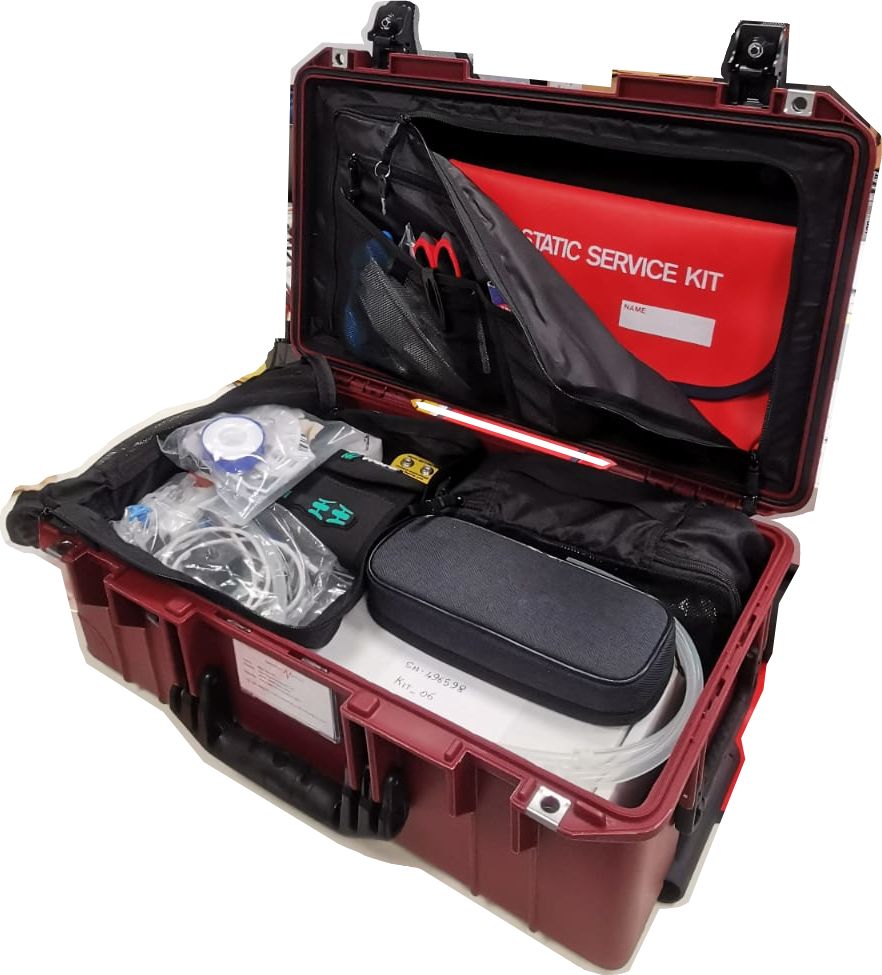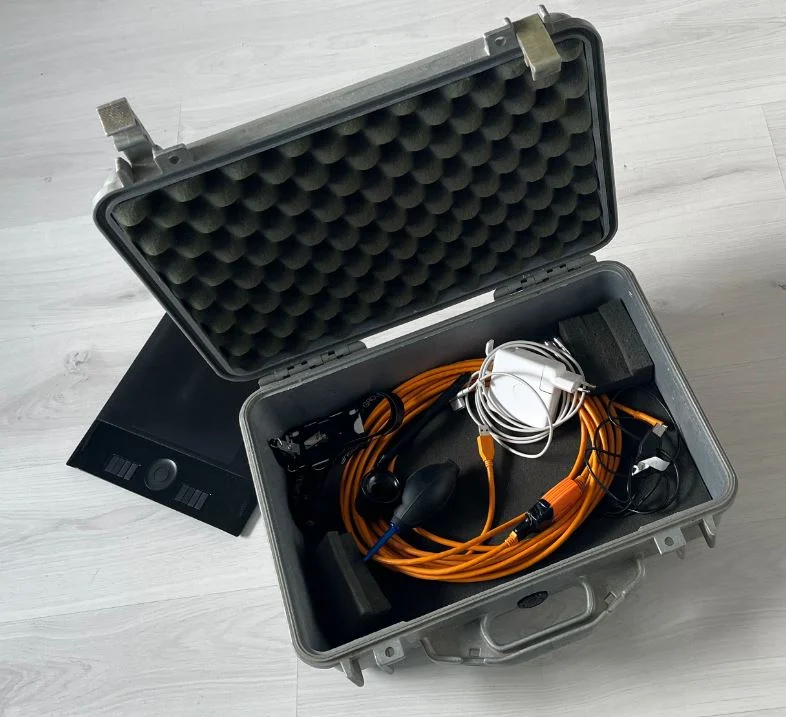On PELInsights, we often cover how Peli’s products protect all that you value, and thus how our products can help professionals in various markets all over the world. With that in mind, we’ve recently embarked on a project to show you exactly how we do this by bringing you the stories of businesses that have used products from Peli to improve their product offering or facilitate operations. These will come in the form on case studies.
In this case study we analyse how a Norwegian organisation by the name of Pump Supply AS, a leading supplier of high-quality high-pressure equipment, protective equipment, and training to organisations that operate in industries such as Marine, Oil & Gas, Industrial and Aquaculture, were able to leverage Peli’s high-performance Protector Cases and incorporate it into the design for their products.
What is Pump Supply?
Pump Supply produces systems with high-pressure pumps, boosters, and compressors for liquids such as water, oil, and other chemicals as well as gases such as oxygen and nitrogen. Pumps have applications in many different industries and are generally utilised to pump a substance from one place to another. In the Oil & Gas sector, for example, pumps are an essential component, delivering oil from ground to ship, oil refinery, or storage and to speed up fluid flow from one point or another. Compressors and boosters are similarly used for many industrial processes, using high pressure air for testing, pneumatic operations, energy storage in a pressure vessel, and many others.
Pump Supply’s Pain Points
Pump Supply’s booster systems are transported all over the world, often to remote areas such as offshore oil rigs and ships located in the middle of the ocean. This necessitates a product that is mobile and lightweight so that it may be easily transported via rail, air, and sea. Additionally, given that the areas where these products are often operated are among the harshest environments in the world, protection is a must.
Having said that, Pump Supply’s original design for some of their booster systems had one big problem: They were designed to be housed within stainless steel or aluminium frames. Not only did these frames provide no protection, but they were very heavy, which made transportation of the systems highly onerous. “Stainless steel or aluminium frames are kind of heavy, there’s no protection,” said a Pump Supply representative. “All the other systems that are in a steel or aluminium frame, you need a pallet. It’s just awkward to move. And no protection.”
Solution
Magne sought to rectify this issue by finding a supplier for the housing for their booster system, identifying Peli Products’ Protector Cases as the ideal solution. Given the Protector Case’s IP67 watertight rating, high-impact resistance, as well as its improved handling and mobility with wheels and trolley handles, it seemed the ideal solution.
Magne was sent an image of a design done by another prominent supplier of hydraulic pressure systems based in the United States, which employed the 1740 Protector Case as housing for some of their systems. It was at this point that Magne reached out to Peli Products to ask for STEP-Files, which are used to represent 3D objects in Computer-aided design (CAD). With these files, Pump Supply and specifically Ketil Lian now had high quality 3D representations of Peli’s 1740 Protector Case and were able to design a new “refined” booster system to be housed in the case.
“We took the idea of using the 1740, and Ketil made all the drawings […] now it’s protected during transport, you can lift it and you can also lift it up and use the wheels on it. It’s a very neat and compact design. It’s well protected. You can even take it on an aircraft if you want to move it alone.”
While mocking up the design, Magne reached out to a loyal customer and partner of one of Peli’s local distributors based in Norway. They were happy to provide Magne’s team with a case to borrow to test out their design prototype. Peli’s well-developed distribution and customer support network is vast, ensuring there is always a Peli expert with the technical know-how as well as local market knowledge on hand to help loyal customers achieve their goals.
“We contacted Peli, [a local distributor], here in Kleppes. They gave us one case we could borrow […] they are always willing to give us the cases to try out, see if things fit inside, they are always very, very easy to work with,” commented Magne.
An additional, but important aspect to the design was the addition of a metal rod to keep the lid open on the case when in operation. Where the booster system design was a complicated feat of ingenuity, this part of the design by Ketil was simple yet imperative for their customers.
Given that the cases are used in extreme locations with winds that can reach up to over 100 kilometres per hour, having a system that can hold the lid open is paramount. A metal rod was designed to hook inside the Protector Case’s eyelet for padlocks that comes standard on all Peli cases. Functioning like a hood strut on a car, it was a simple yet vital addition to the design of Pump Supply’s booster system housed in the 1740 Protector.
“When you’re in a windy situation offshore, you don’t want the lid to clap over your fingers. This is a health and safety issue onboard platforms. You don’t want to be hurt in heavy winds by that lid because it slams very hard over your fingers. So that’s why we made those hold open rods. You can’t control the wind,” Magne described.
Results
After designing and manufacturing the booster system, Pump Supply was able to achieve various levels of results. The first result being that there is no longer any need to design and manufacture a frame, resulting in time-savings and as well as cost savings.
As Ketil explained, “We ended up going with the solution of a Peli case because it was done right and much cheaper for us.”
Additionally, using the Protector Case instead of the steel frames gives the system protection that the frames do not provide. This results in fewer damaged goods, resulting in less maintenance and replacement costs. Of course, this also means higher customer satisfaction.
“We don’t have to make a frame in stainless steel. And we don’t have any issue with protection of it because it is always protected inside the case […] That’s what Peli gives us. A very sturdy case. A good case.”
With no frame, the entire system is also much lighter. Now in a lighter-weight Protector Case, the booster system is much easier to move around when picked up, but also with wheels and trolley handle, the case can easily be moved rolled around. Reducing weight also has the added benefit of reduced freight expenses.
“I think actually using the 1740 […] is actually much cheaper than making a stainless-steel frame and you save a lot of weight, which is a big, big issue […] they’re lowering the weight limit all the time, so weight is always an issue.”
If you’d like to know more about how Peli can help you in your custom design project and achieve similar results to Pump Supply AS, get in touch with Peli today at Peli.com.
To learn more about Pump Supply’s pumps and boosters systems, visit www.pumpsupply.no/






